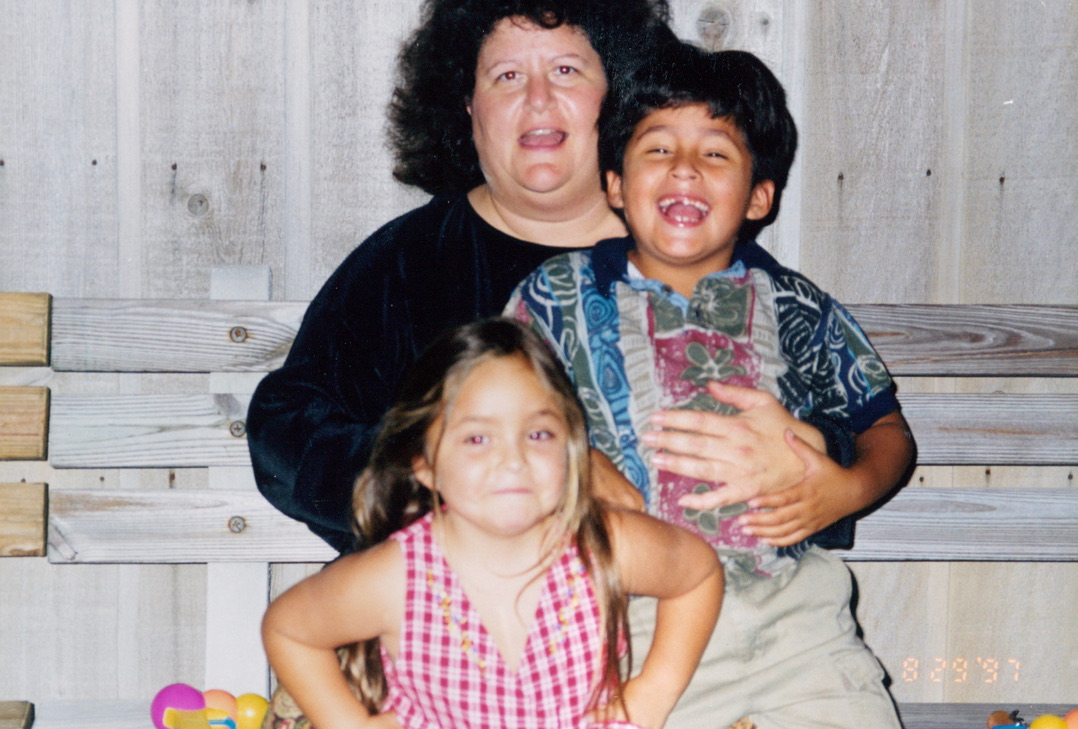Day 3: Lost and Found
I remember when my mom told me I was adopted.
She had just picked me up from school in our giant conversion van, and my sister was in the car too. I must have been triggered by something at school—maybe a bully, maybe my friends asking—but for whatever reason, I decided that this was the time to ask my mom the question that had been on my mind.
“Mom, do I have a dad?” Not, “Who is my dad?” but “Do I have a dad?” It’s a distinction that speaks to how I felt then and still feel now—I never felt like I needed a dad. Maybe the way I asked her showed that I wasn’t seeking a father figure; I was just curious.
My mom tried to deflect. Maybe she wanted to avoid the topic because Thea, who was two years younger, was sitting beside me. But I was persistent, and eventually, I got my answer.
“You don’t have a dad, Daniel. I adopted you and Thea.”
One might expect a child to react with shock or disbelief. “My mom isn’t my biological mom?!” But it wasn’t anything like that. My response was simple: “Oh, okay.” I followed up, “Is Thea my sister?” And when my mom said, “Yes, you have the same mom,” I was satisfied. That was all I needed to hear.

Daniel—we found him. And Thea, she found us.
I’m sure my mom was puzzled, maybe even bracing for a more intense reaction. I think Thea was watching me closely too, waiting to see how I’d respond. But I was content. I had my answer, and that was that. My mom was my mom. My sister was my sister. I was a son and a brother.
We didn’t look alike, but my family was my family—the Avner family.
As I grew up, though, I started getting glimpses into the complexity of race and identity. One of my earliest experiences with this came when I was just a boy at SeaWorld. I was enjoying the park when a lost family approached me and started speaking Spanish. Little me had no idea why they chose me for directions. I stood there, confused, as they waited for me to respond. It wasn’t until much later that I realized it was because of how I looked.
When my mom died, something changed. Her death triggered deeper feelings of displacement. My foundation, so firmly built on my mom’s presence, cracked. I felt untethered, and it started me on a journey of searching for my community and my place in the world.
For most of my childhood, I never thought about my race or ethnicity. I was adopted and raised by a white, educated, emergency room doctor—my mother—and that was the lens through which I viewed and experienced the world.
But when my mom died, those privileges didn’t protect me from the identity crisis that followed. Suddenly, there was a rift between how I was raised and how the world saw me.
I wasn’t white. I was a person of color. I wasn’t Guatemalan, but I looked Guatemalan. And since I didn’t speak Spanish, I was teased for looking the way I did without speaking the language. I was American, but to many people, I didn’t look “American.”
It was a confusing time, and the cracks in my sense of self widened. Who was I? Where did I belong?
I once had someone tell me that my cultural identity didn’t matter—that I was just me. That felt like a privileged take. To me, understanding your background, history, and where you come from is crucial. These elements form the foundation on which you build the person you become. Ignoring them leaves cracks that can’t be filled by simply being ‘you’.
23andMe helped bring some closure to those questions. I learned that I was Guatemalan and European. Finally, I had an answer for what had given me my beautiful caramel skin tone. No more guessing. The hard part was no longer being able to joke that Dwayne Johnson was my father.
As I connected with second cousins who shared my skin color, I discovered that many of them had experienced similar struggles with identity. Most of them were on 23andme because, they too, were adopted. Slowly, I started finding and building my community. I found community with my in-laws, my friends, and among my American-Jewish family. I connected with my biological family and found closure there as well.
Through all of this, people often assume that my greatest challenge as an adoptee would be coming to terms with being “given up,” or wondering why my birth parents didn’t want me. But that’s never been a thought I entertained. I was lucky. My mom and my sister gave me so much love that I never questioned it. My family—my real family—was always enough.